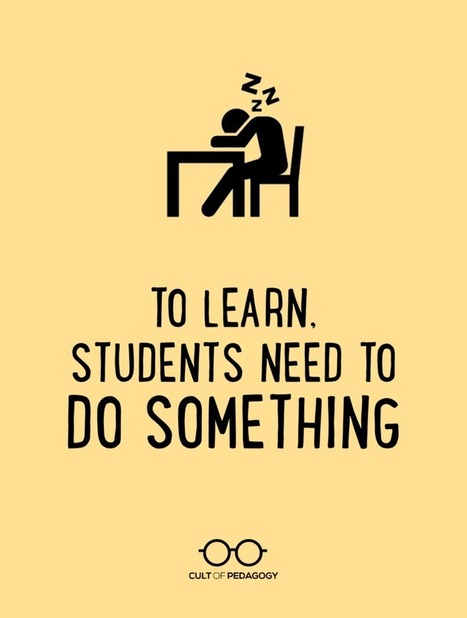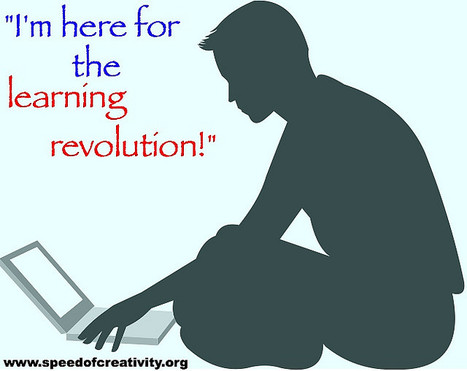This was a couple of years ago, when my kids were all still in elementary school, but since that time, I’ve seen this pattern more and more as they’ve gotten older: Every day, for the most part, information is delivered to them in some really basic way—usually PowerPoint—and the kids copy down what the teacher tells them to from the slides. Then they have some sort of worksheet where they’re basically regurgitating what was on those slides. After this cycle repeats four or five times, they have some kind of test. And that’s it.
This is not good. If we want our students to actually learn the facts and concepts and ideas we’re trying to teach them, they have to experience those things in some way that rises above abstract words on paper. They have to process them. Manipulate them.
To really learn in a way that will stick, they have to DO something.
Via John Evans



 Your new post is loading...
Your new post is loading...



















To learn something, students need to DO something, not just read or listen. I couldn't agree more. In the classroom or online, to do and think about what you have done is the surest path to learning success !